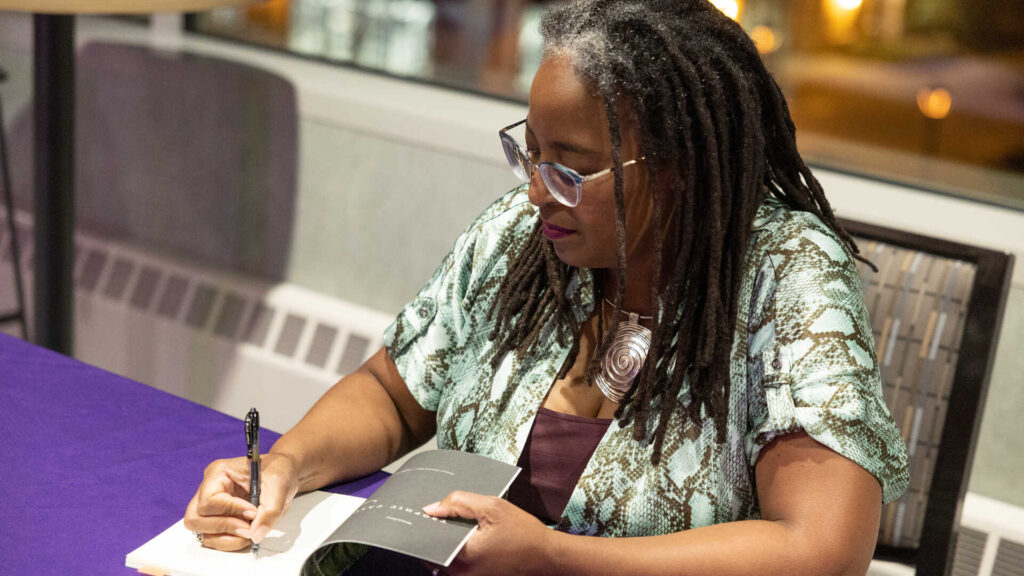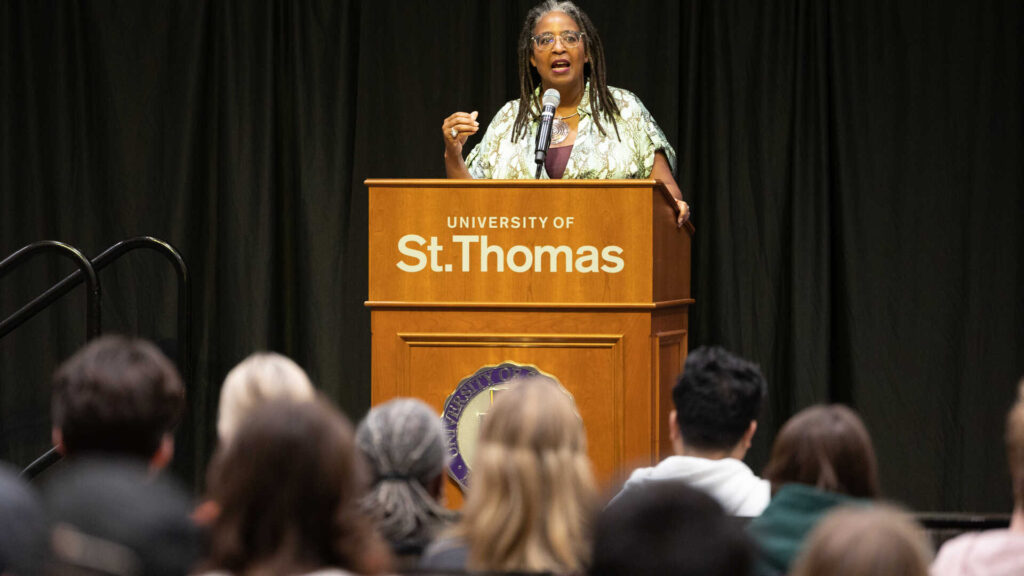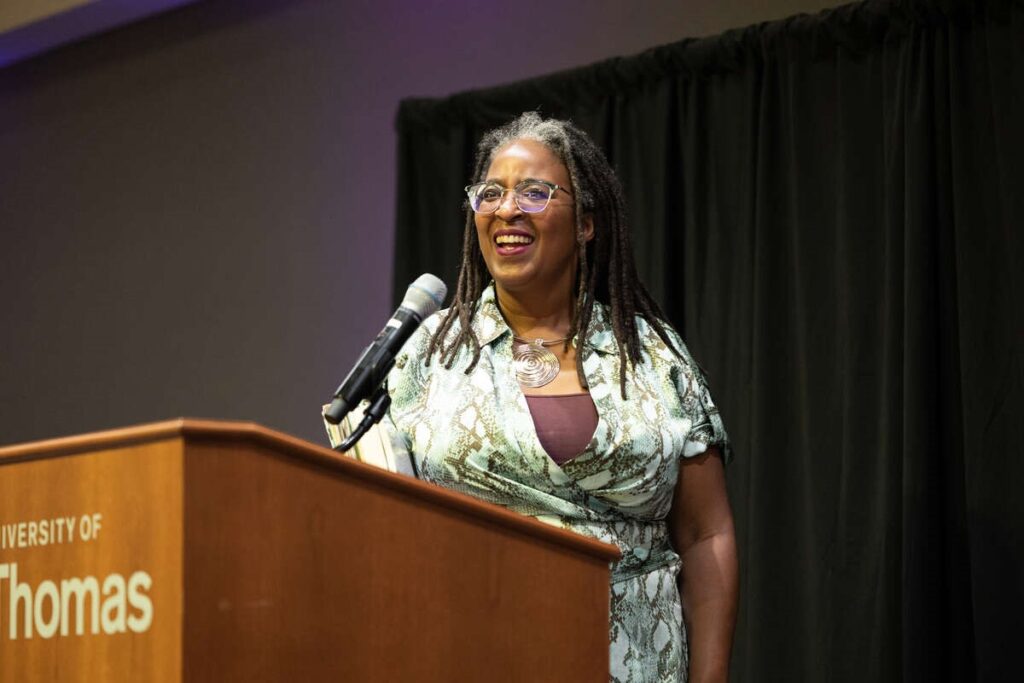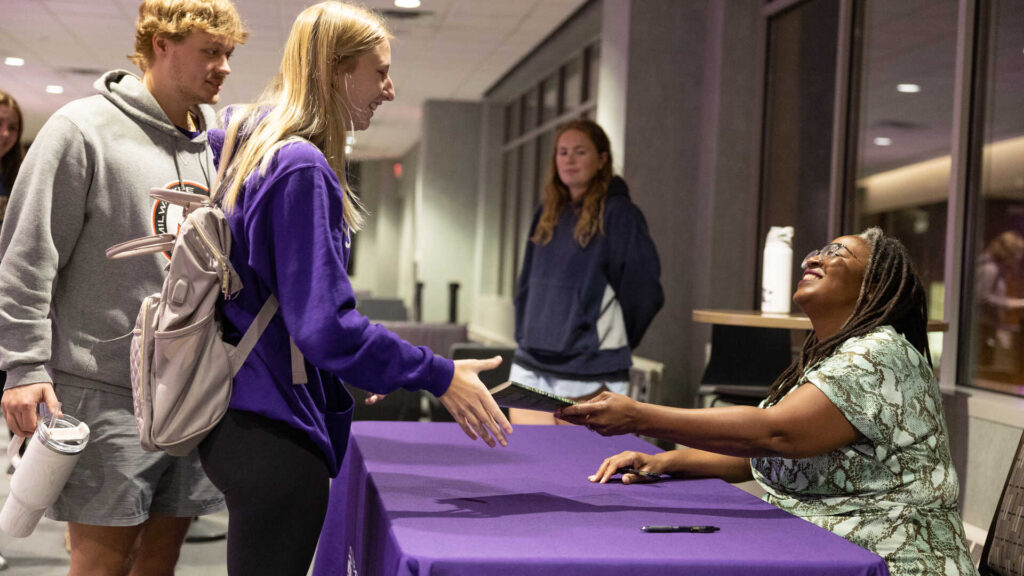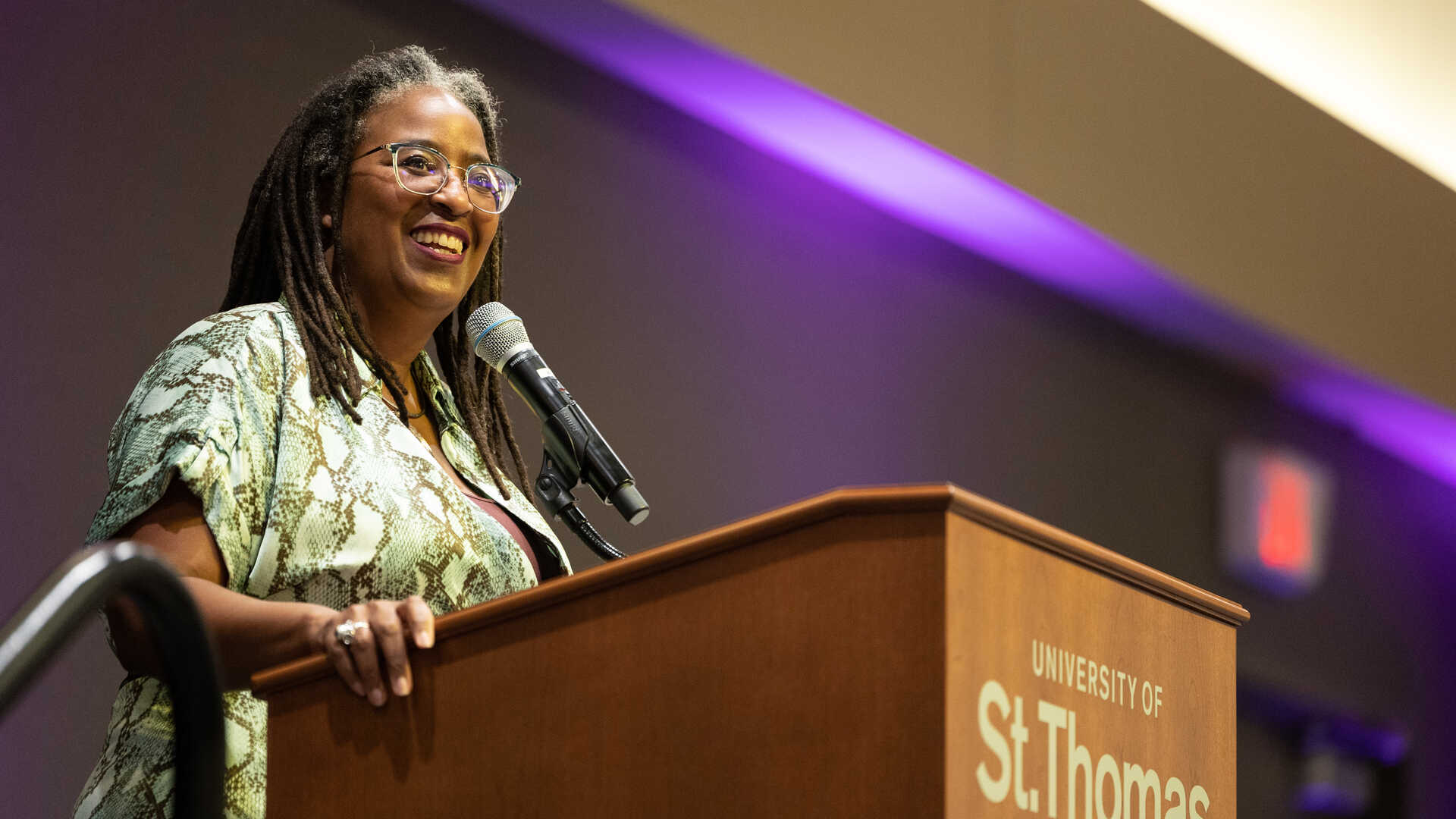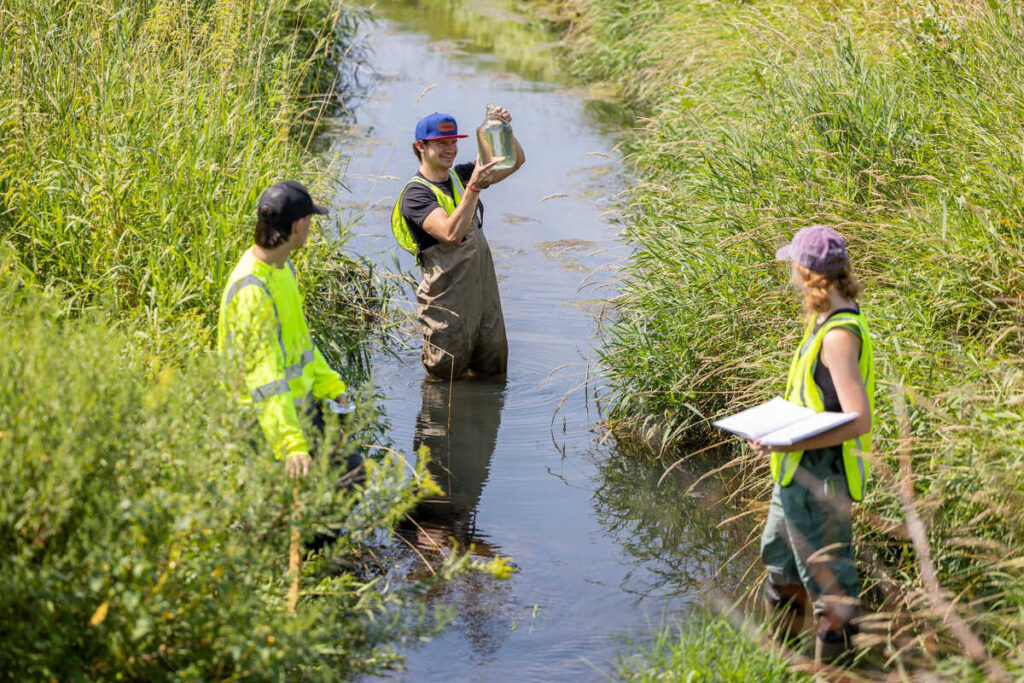When author and poet Camille Dungy moved to the predominately white city of Fort Collins, Colorado, in 2013 with her husband and daughter, the homeowners association (HOA) held strict restrictions about what residents could and could not plant in their gardens. Breaking these rules could result in costly fines.
Dungy wanted to create a more diverse garden that would benefit the community and nature, she told attendees of the Diverse Voices Author Series at the University of St. Thomas in Minnesota. She had little experience in gardening, however, once mistakenly using a toy gardening tool to shell through concrete.
“I wasn’t the expert on what I was doing. But that provided opportunities for learning,” Dungy said.
In the unfamiliarity of the gardening landscape, Dungy’s relationships with her neighbors grew. By building connections with her neighbors, Dungy learned about the different digging tools used for planting. Moreover, Dungy created a more diverse landscape, in more ways than one.
“I’m lucky the neighbors I speak to claim to be grateful that we moved in, cultivating the most heterogeneous environment on our street both with our presence as a Black family and with our landscaping decisions,” Dungy stated. “Our HOA eliminated its rules against nonstandard landscaping, and the town of Fort Collins actively works to help residents create landscapes that support native plants.”
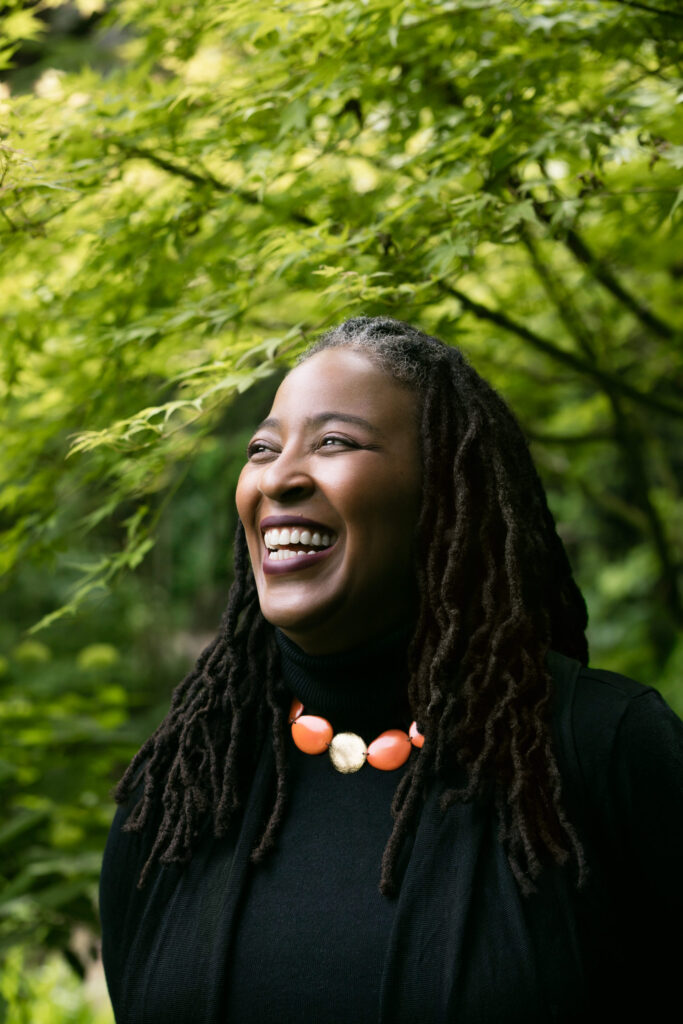
Dungy wrote about her experiences in her memoir, Soil: The Story of a Black Woman’s Garden (Simon and Schuster: 2023).
“I dig up a lot of awful history when I kneel in my garden. But my God, a lot of beauty grows in this soil as well,” Dungy read from Soil.
Dungy, who was invited to the St. Thomas campus by the English Department and the Diversity Activities Board, is the winner of the Colorado Book Award and the recipient of the 2021 American Academy of Poets Fellowship. Her poems and essays have been published in Best American Poetry, The 100 Best African American Poems, and in over 100 print and online journals. She’s published four collections of poetry, most recently Trophic Cascade (Wesleyan University Press: 2017).
Dungy’s work toward diversity began prior to establishing her garden. Wanting to highlight the writings of African Americans’ poetry on nature, Dungy became the editor of the anthology Black Nature: Four Centuries of African American Nature Poetry, the first anthology to focus on nature writing by African American poets. The anthology was the winner of the 2010 Northern California Book Award and a 2010 NAACP Image Award nominee.
Dungy explained her motivation for editing Black Nature. “I wanted to become a steward for making spaces that were safe, supportive, sustainable, and beautiful for myself, my family, and my community to appreciate,” she stated. “So, one of the ways that I have been doing that is through writing, editing, and collecting the work of other writers.” The anthology includes 180 poems from 93 poets, and writings expanding centuries, from the time of slavery and the Reconstruction era to the late 20th- and early 21st-century African American poetic movements.
In editing Black Nature and writing Soil, Dungy researched and discovered facts about America’s past that at times, were complicated. “But as I learn more of those things, I started to feel more grounded in the place I call home,” Dungy remarked. By resurfacing history, even when it was messy or violent, Dungy understood the importance of learning.
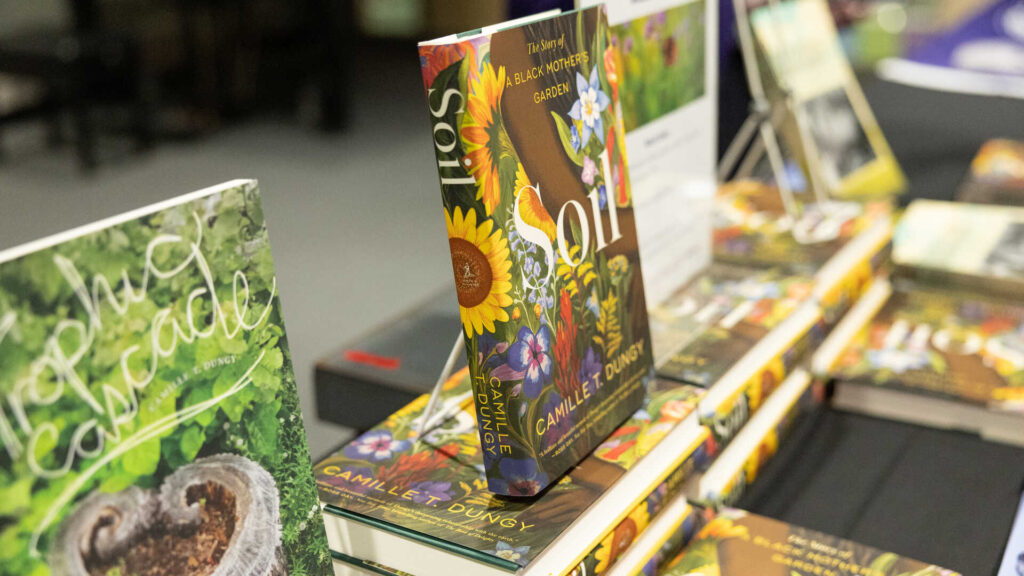
First-year student Emma Zauhar asked, “As a Black woman, do you ever feel the burden of educating people, or do you use that as an empowerment?”
Dungy sees it as a chance to have dialogue. “There’s a time for conversation for diverse speakers. I get to be here and do this work and show a variety of ways of being, seeing meaning, and meeting expectations, but also expanding them. You know, I feel like it’s an opportunity to not be silenced. Whatever that means, and whatever form that comes in, I will take that opportunity and refuse that silence. But if that opportunity isn’t there, I will find a way to begin,” she said.
“One of the things that goes on is a narrowing of perspective and perception,” Dungy continued. “The pigeonholing of people into certain kinds of thinking is deeply unhelpful to creativity. It’s deeply unhelpful to innovation and to conversation, and to making the kind of art and conversations that are necessary for making the kinds of changes that we’re going to need to make. If we’re always asking the same people the same questions, we’re going to keep getting the same answers.”
Dungy left the attendees with words of advice.
“Be the change you want to see in the world,” Dungy said. “But you don’t have to start giant, you can start small. I fundamentally believe that if each of us does this kind of work starting in our own backyard, foot by foot, month by month doing the work of trying to create sustainable, diverse, interconnected, supportive communities and environments around us, we’re going to clear the road.”
Dungy is currently a university distinguished professor in the English Department at Colorado State University.
